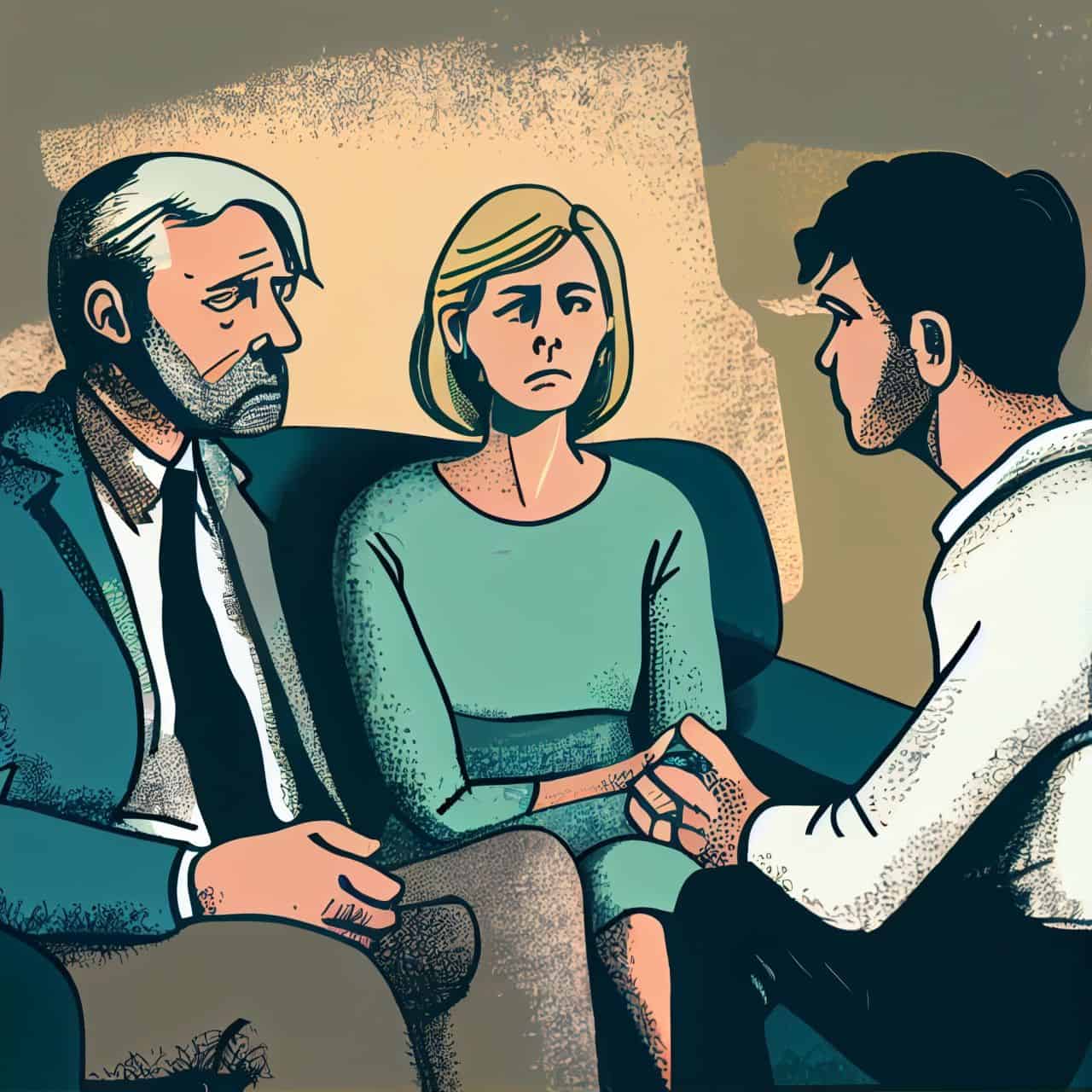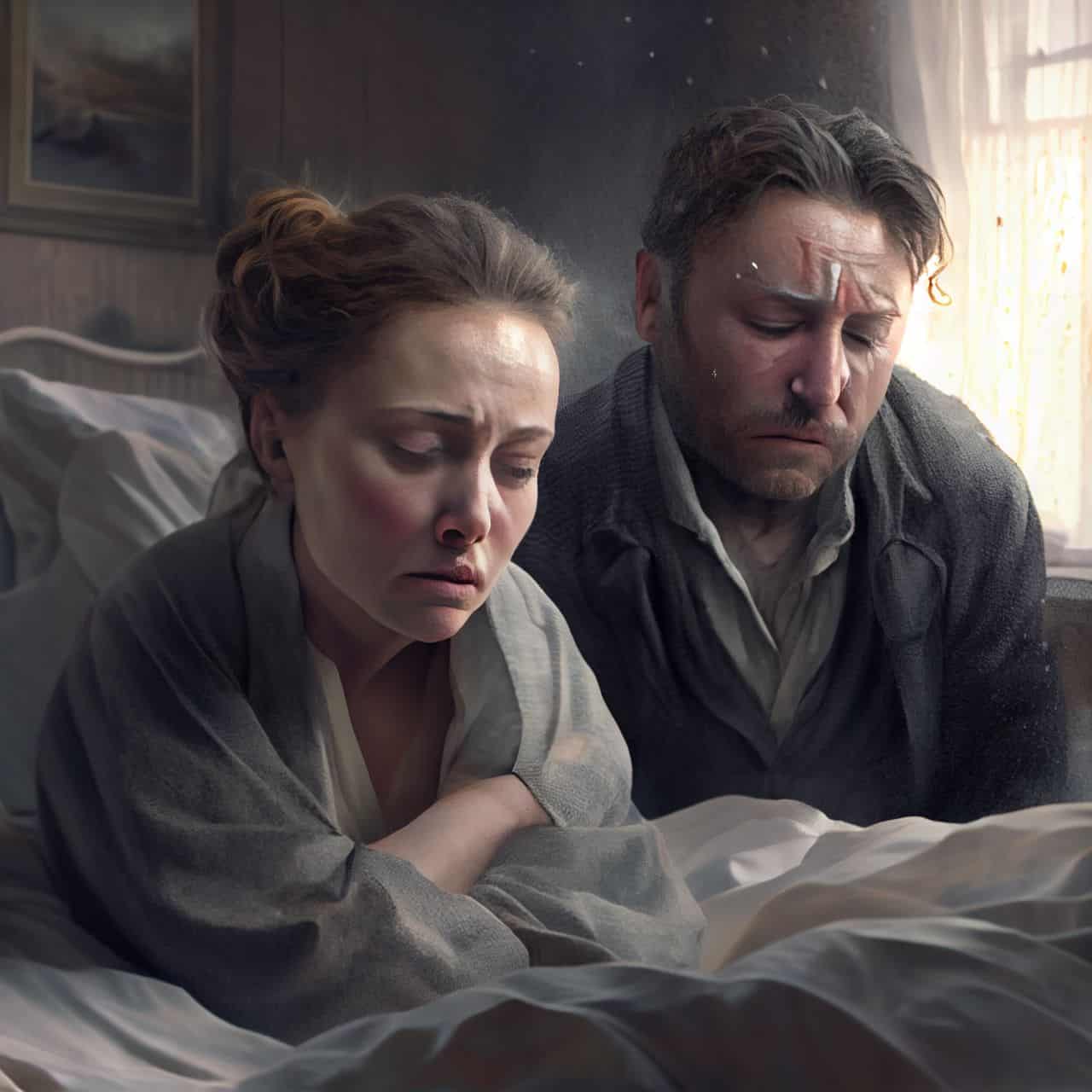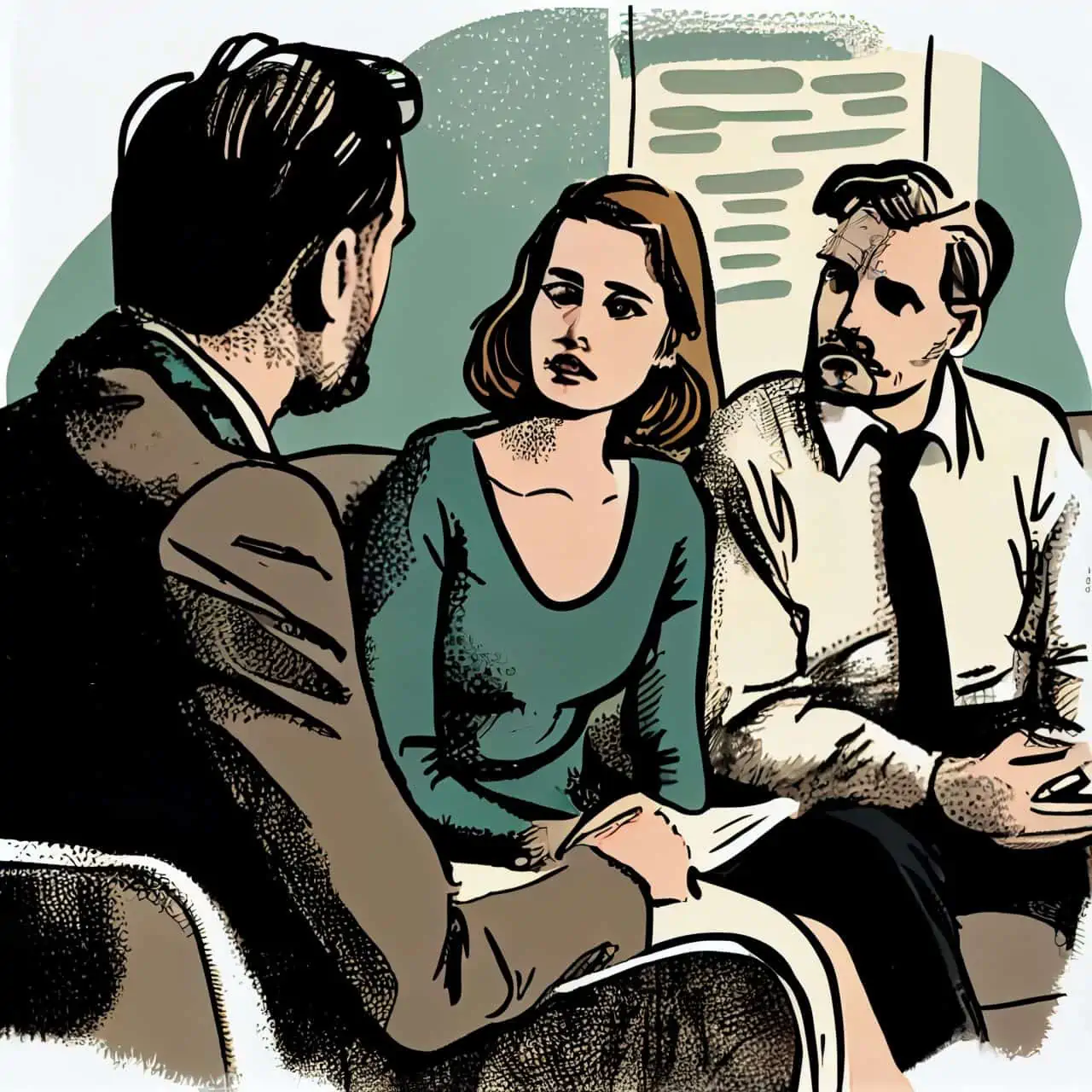Relationship counseling is a beneficial tool for couples, but there are many myths about it not being useful for men. There can be societal pressures and expectations on men to be strong and tough in relationships, which can sometimes lead to them not wanting to seek help in times of crisis. This article aims to draw attention to this issue and explain the importance of relationship counseling for men.
Relationship counseling provides an open and safe space to express feelings, beliefs, needs, and wants without worry or judgment. It is an opportunity for individuals to look at their issues with a positive perspective that allows exploration of self-awareness, communication and conflict resolution skills, boundaries, and understanding of issues within relationships. Men participating in couples therapy can improve their communication and learn how to support their partner’s needs better while staying true to their values and priorities. With these tools, a greater understanding of one’s partner can improve relationship satisfaction.
Couple’s therapy is beneficial for all types of relationships, whether those involving marriage or common law partnerships or those just entering a relationship looking for guidance on negotiating boundaries and dealing with possible underlying issues before they become more significant sources of contention or resentment down the road. The goal is always ultimately to reconnect on an even deeper level resulting in increased trust, satisfaction, and intimacy within the relationship.
While counseling may seem intimidating, understanding why it could be beneficial is critical when deciding how best to care for yourselves as individuals and a “couple unit” altogether.
The Benefits of Relationship Counseling for Men

Relationship counseling can be an excellent way for men to better understand their relationships’ dynamics. It helps them become more aware of their own emotions and their partners and how to communicate and resolve issues effectively. The goal of counseling is to help men better understand their relationships and how to improve them. This article will explore the different benefits of relationship counseling for men.
Improved Self-Awareness
Relationship counseling can help men become more self-aware and develop insight into their behavior, feelings, and reactions to their partner. This increased understanding is vital for making good decisions that lead to healthier relationships. Counseling can provide guidance as men identify harmful dynamics in their interactions with others and learn how to overcome them. It allows men to recognize the parts of themselves that are stuck in limiting behaviors, such as feeling ashamed or being passive-aggressive.
Additionally, relationship counseling helps men identify unhelpful patterns and negative habits in their relationships, building on improved self-awareness. As they become aware of the impact of the dynamics within their relationships, they gain deeper insight into what works for them and what does not. They learn to respond better to stressors or triggers specific to them or the relationship. They can also better understand what creates healthy relationships instead of ones based on power struggles or manipulations. Relationship counseling encourages men to become more mindful of their interactions with others while providing strategies for effective communication and emotional regulation skills so they can make healthier choices when responding to challenging situations.
Improved Communication Skills
When it comes to improving communication skills, relationship counseling can be incredibly beneficial for men. Counseling can help men learn effective communication techniques, such as active listening, expressing feelings honestly and clearly, responding effectively to their partner’s communication preferences and practices, and addressing deeper communication issues, like understanding underlying thoughts and feelings. These techniques can not only improve communication within a partnership but also assist in building more meaningful connections with other family members and potential partners in the future.
Relationship counseling can also provide men with tools for improving their ability to empathize with others. Guiding men through understanding the words and body language of their partner—and themselves—allows them to develop a better insight into their partner’s feelings and their own without breaking down into conflict. This understanding helps couples better resolve conflicts by exploring both sides of an argument instead of merely relying on assumptions or what they believe they already know about each other.
Improved Conflict Resolution Skills
Relationship counseling allows men to develop and strengthen communication, problem-solving, and conflict-resolution skills. Through sessions with a licensed counselor, men can gain a better understanding of their own behavior patterns in the relationships they are in. In addition, men can work with a counselor to identify common conflict areas between them and their partners, such as communication style, finances, house chores, parenting issues, and more. Counselors can then guide them toward developing strategies for resolving these conflicts when they arise.
Examples of improved conflict resolution skills that men can learn from relationship counseling are enhanced listening skills and active participation in conversations; identifying patterns that may be leading to increased tension between partners; learning healthier ways to express anger and other emotions so that it does not lead to further hurtful situations; develop negotiation strategies that work for both individuals; accept responsibility for one’s actions rather than blaming the partner or using passive aggressive behaviors; address root problems rather than concentrating on minor issues which may contribute to the overall tension between individuals.
Common Misconceptions About Relationship Counseling

Relationship counseling can be an excellent way for men to discuss their issues without feeling judged or stigmatized. However, there are still a lot of common misconceptions about the usefulness of relationship counseling for men. This article will cover some of the common myths about relationship counseling for men and why it is actually beneficial.
It’s Only for Women
Many individuals may have heard of relationship counseling and believe it mainly benefits women while men do not need help; this is a common misconception. All people can benefit from counseling as it allows them to reflect on their behaviors, thoughts, and feelings as they interact with their partners. Furthermore, research has shown that men are just as likely to benefit from couples counseling and benefit just as much as women.
In some cases, therapy may be more helpful for men than women due to personal struggles such as anger management issues or reluctance to open up about emotions. Experienced counselors can help a man process their feelings in a productive way that can help bring sustainable resolution in the partnership. Additionally, relationship counselors work with couples, so both individuals maintain open communication and learn to hear each other’s opinions without judgment or criticism.
Overall, couples of all genders are encouraged to attend counseling sessions if they face relationship problems. With an experienced counselor trained in active listening techniques and anger management methods, couples can restore peace in their partnership with dignity preserved on both sides.
It’s Too Expensive
Relationship counseling can indeed be expensive in some cases. However, it is also essential to consider the long-term benefits. When a couple invests in counseling, they invest in their relationship’s future. Research has shown that couples who attend counseling are more likely to resolve conflicts and improve their communication skills, which can help them sustain healthier and happier relationships. Additionally, many therapists offer sliding scale payments that accommodate people with different incomes.
Furthermore, insurance may cover the costs of therapy sessions for those with health insurance plans that include mental health coverage. When you think about it, couples may save themselves money in potential court or legal fees by seeking counseling services before things get worse between them. Ultimately, when examining the total cost of therapy versus the cost of dealing with relationship issues down the line, you may factor out that investing in counseling can be well worth it for both parties involved.
It’s a Sign of Weakness
One of the most common misconceptions related to relationship counseling is that it is a sign of weakness. On the contrary, seeking help when needed can be one of the bravest and strongest steps you can take to save your relationship. It takes a great deal of courage and maturity to recognize when an issue or problem within a relationship can no longer be resolved solely through internal dialogue, and honestly confronting these issues in an open, constructive manner with an objective; a professional third-party mediator can help couples navigate and work through personal problems easier.
Research has shown that individuals who access quality counseling services and utilize evidenced-based approaches such as cognitive behavioral therapy (CBT) have higher satisfaction rates in their relationships, career success, improved communication within the family system, and increased personal growth. Working with a counselor can also give partners insight into strengths they didn’t know they had, provide tools to better manage stressors in life, and experiential learning activities which promote increased awareness.
How to Find the Right Counselor
When it comes to finding the right counselor for relationship counseling, there are various factors to consider. Finding the right fit for you and your partner is essential for the success of your counseling sessions. Finding a counselor with whom you can connect and be attentive to your needs and objectives is crucial. In addition, it is essential to find a counselor who is experienced in relationship counseling and has a good reputation. These are all considerations when looking for the right counselor.
Research Different Types of Counseling
When searching for a relationship counselor, it is essential to research the types of therapy they offer. Different types of counseling have other objectives and methods and may be more or less suitable to different needs. For instance, couples counseling focuses on helping couples resolve current issues, while family counseling works best when exploring patterns of communication that have been passed down through multiple generations. Knowing what type of goal you’re interested in achieving and identifying any areas you’d like special attention paid to can help narrow your focus when researching for the right counselor.
You may consider looking into different counseling services, such as group or individual sessions. Group sessions can be beneficial if multiple members of a family or two partners in a couple are hesitant to engage in counseling due to any stigma associated with seeing someone one-on-one. On the other hand, individual sessions can help discuss topics that involve personal distress or high levels of privacy, which are unsuitable for larger groups.
Certain counselors are also adept at using specific therapeutic modalities – such as cognitive-behavioral therapy (CBT), psychodynamic therapy, or interpersonal therapy – which may be more suitable depending on individual preferences and goals. Researching potential counselors’ expertise on particular forms of counseling can help narrow down the list accordingly and save time looking for one best suited for your needs.
Ask for Recommendations
Word of mouth is often the most reliable source for finding a good counselor. If a family member or friend has experience with counseling, ask for their thoughts – it’s the closest thing to “trying it out” without actually doing so. Don’t hesitate to ask in your personal and professional circles; you may be surprised by who can provide helpful leads.
When looking for someone to serve as your counselor, start by considering the gender and type of counseling needed. Are you in need of relationship counseling? Does the male partner have an issue with substance abuse? Knowing what kind of therapist fits your needs will help narrow your search.
For more detailed information, contact potential counselors directly and inquire about their qualifications, experience, areas of focus, and availability. Ensure that any potential therapist is licensed in the state where they practice – having this credential indicates professional best practices are being followed.
When talking with practitioners, consider how well their approach matches up with what you’re searching for in therapy – be honest about what has happened up until this point and any services that you expect from the process moving forward.
It’s also essential to establish whether insurance coverage is available and if associated costs are within reach before your appointment, efficiently managing time and money throughout the process. Last but not least, decide whether this person makes you feel comfortable enough to disclose information about yourself openly during your sessions. After all, a good relationship between yourself and your therapist is key to success!
Check Credentials and Qualifications
When considering a relationship counselor, it is crucial to ensure they have the necessary certifications and qualifications. It’s recommended that you look into the background and experience of any potential counselors before committing to any sessions. Ensure that the counselor has a valid license, adequate training in couples counseling, and clinical expertise.
It’s also essential to research the type of counseling approach the counselor uses, as each therapist tends to utilize different techniques when helping couples work through their issues. Additionally, check out any reviews or feedback from past clients to gauge whether a counselor is right for you.
It might also be helpful to review the therapist’s policies regarding payment, missed appointments, and other matters before taking action. Before starting any therapy sessions, you should feel comfortable with your therapist and their approach.
Would You Benefit From Relationship Counseling?
Overall, research suggests that relationship counseling can be helpful to men, especially if they are motivated to understand their partners better and if the couple is willing to grow together. Therapists can provide men with valuable guidance on how to communicate more effectively with partners, recognize and address interpersonal issues, and improve the overall quality of the relationship. It is up to the men to take advantage of this opportunity and commit to developing a more robust connection for counseling sessions to be effective.

